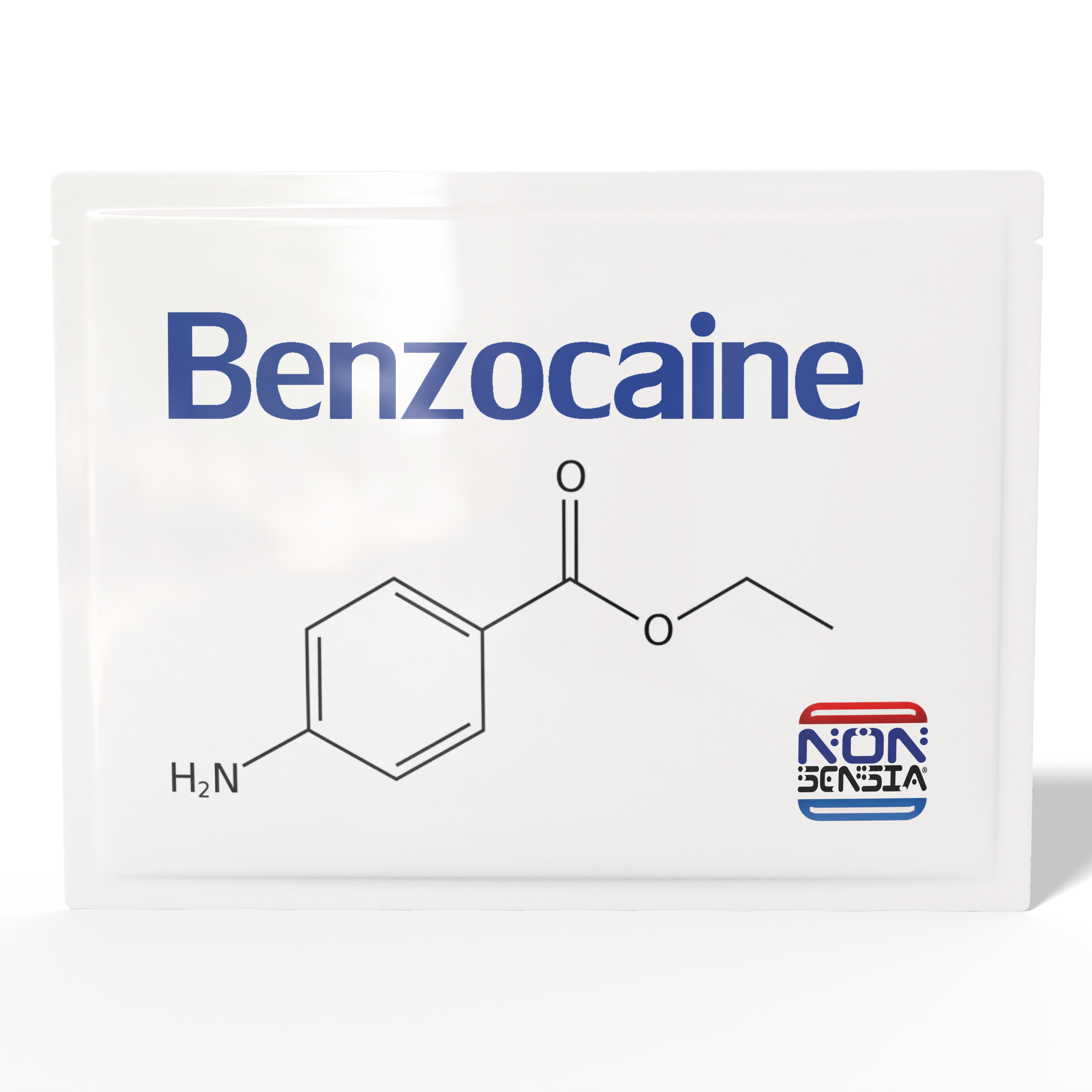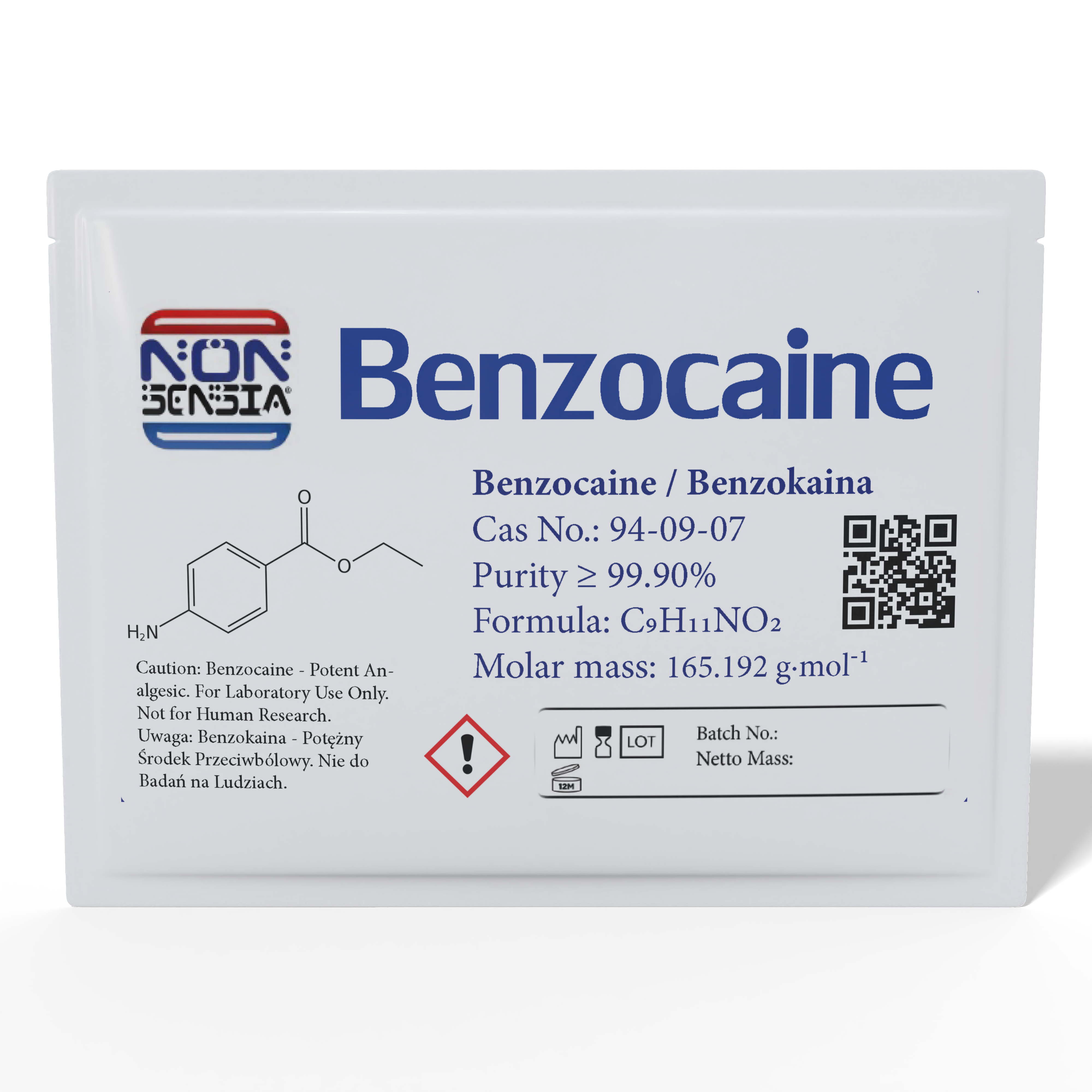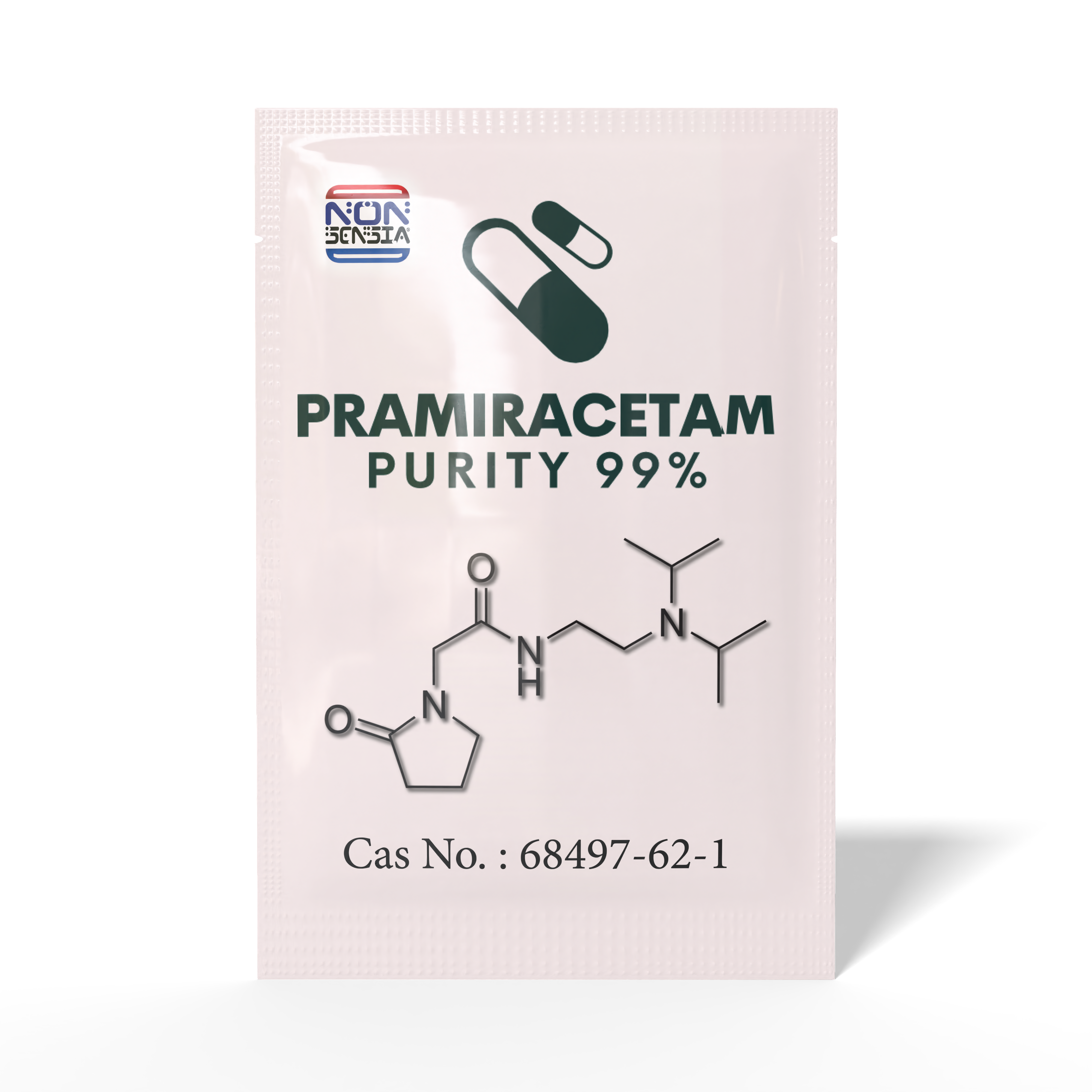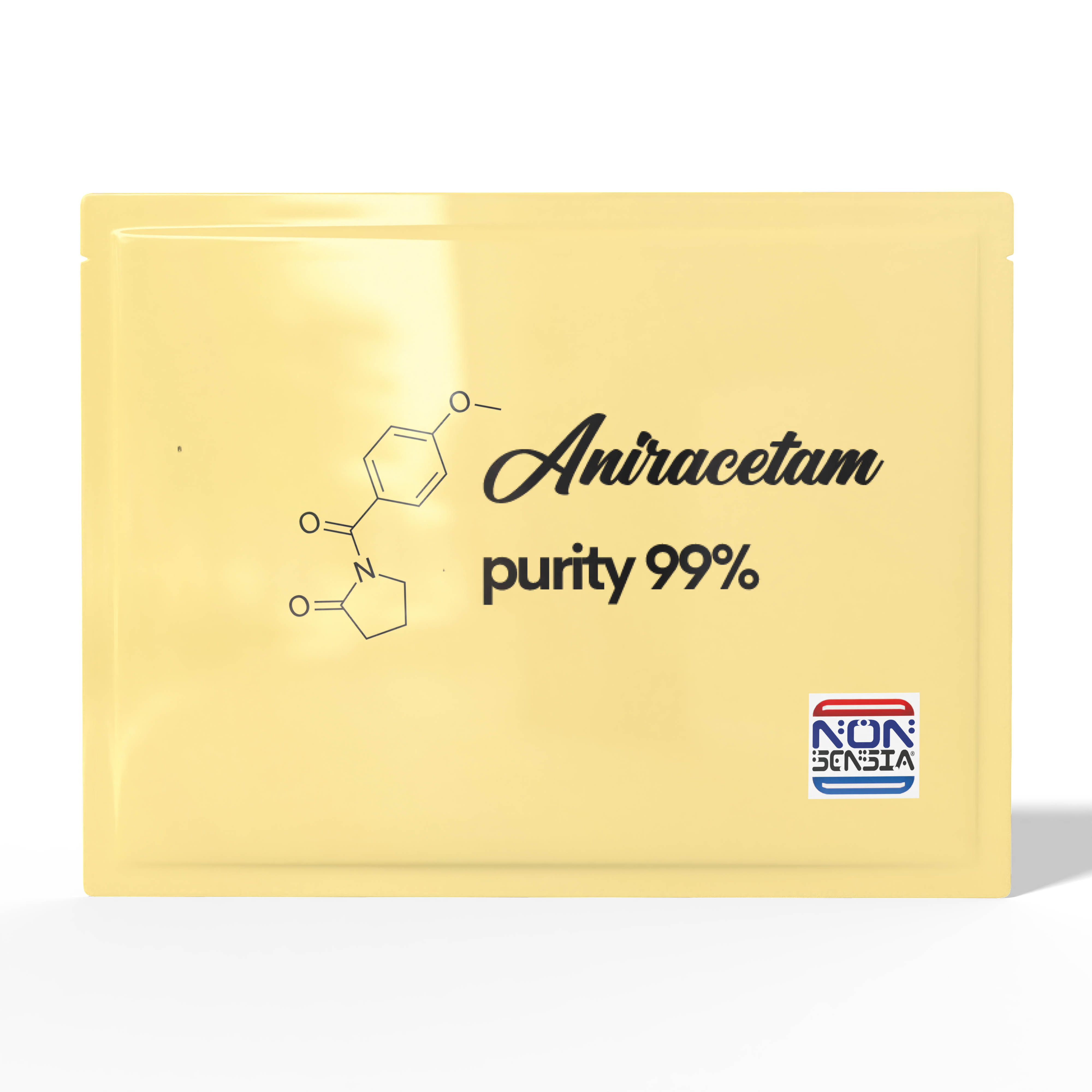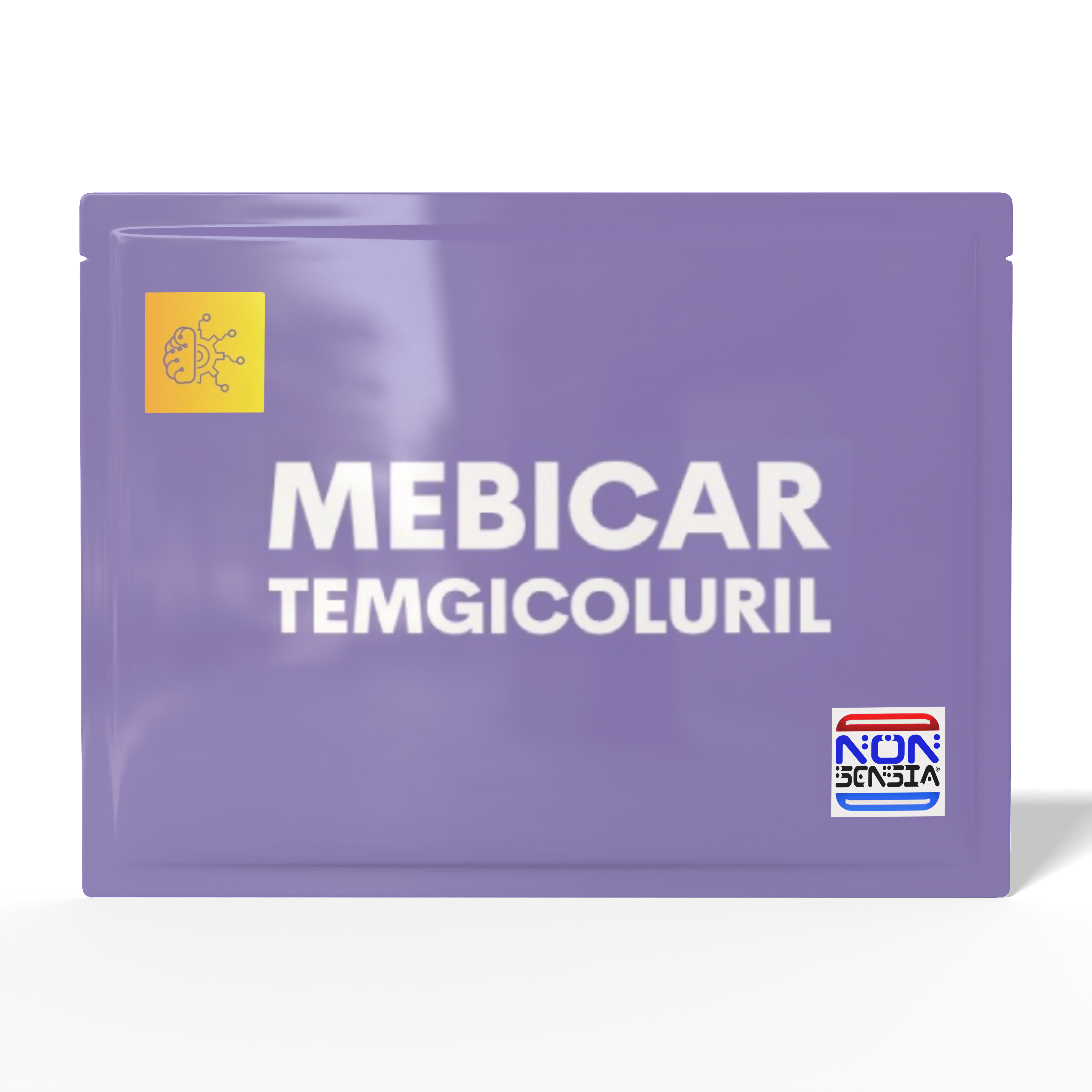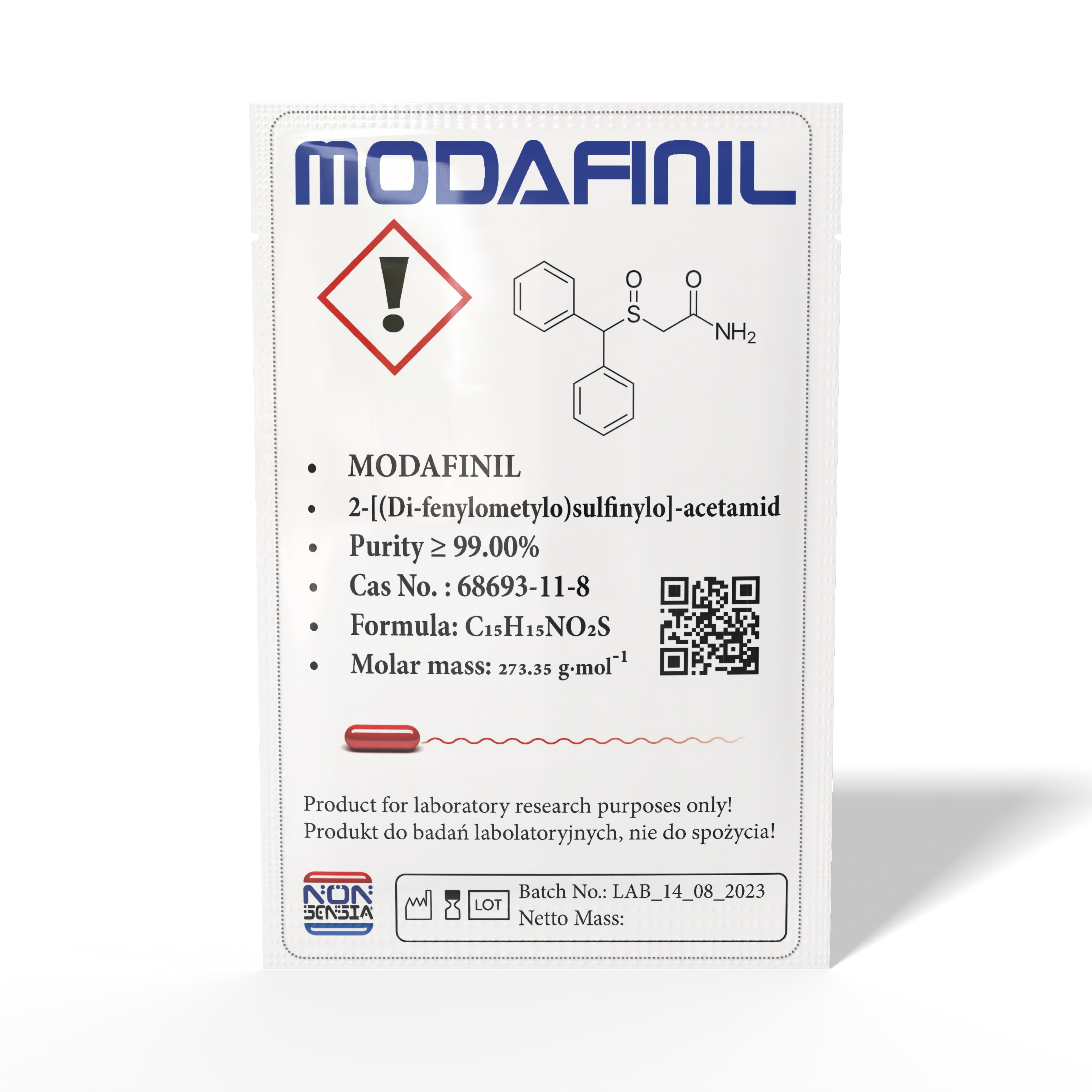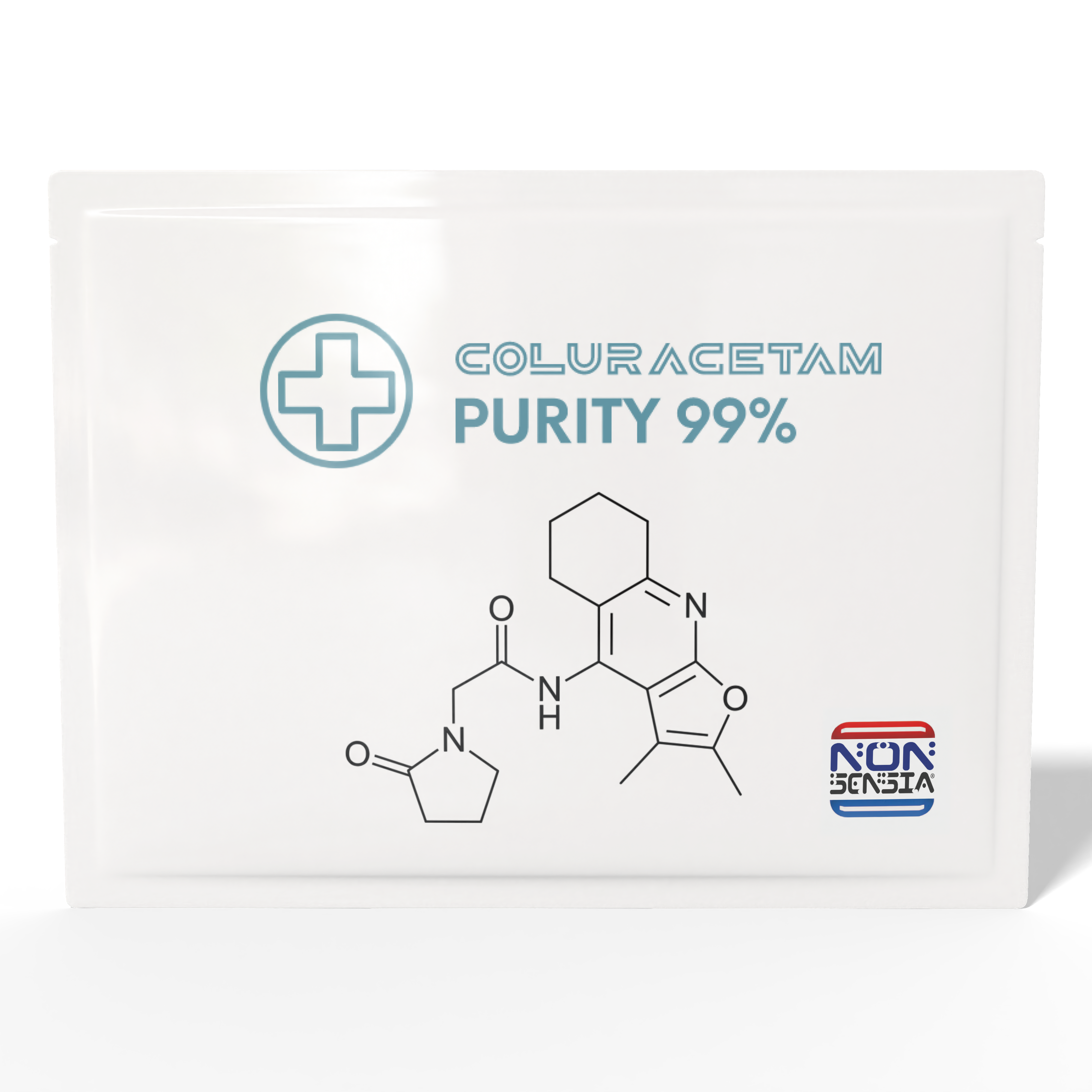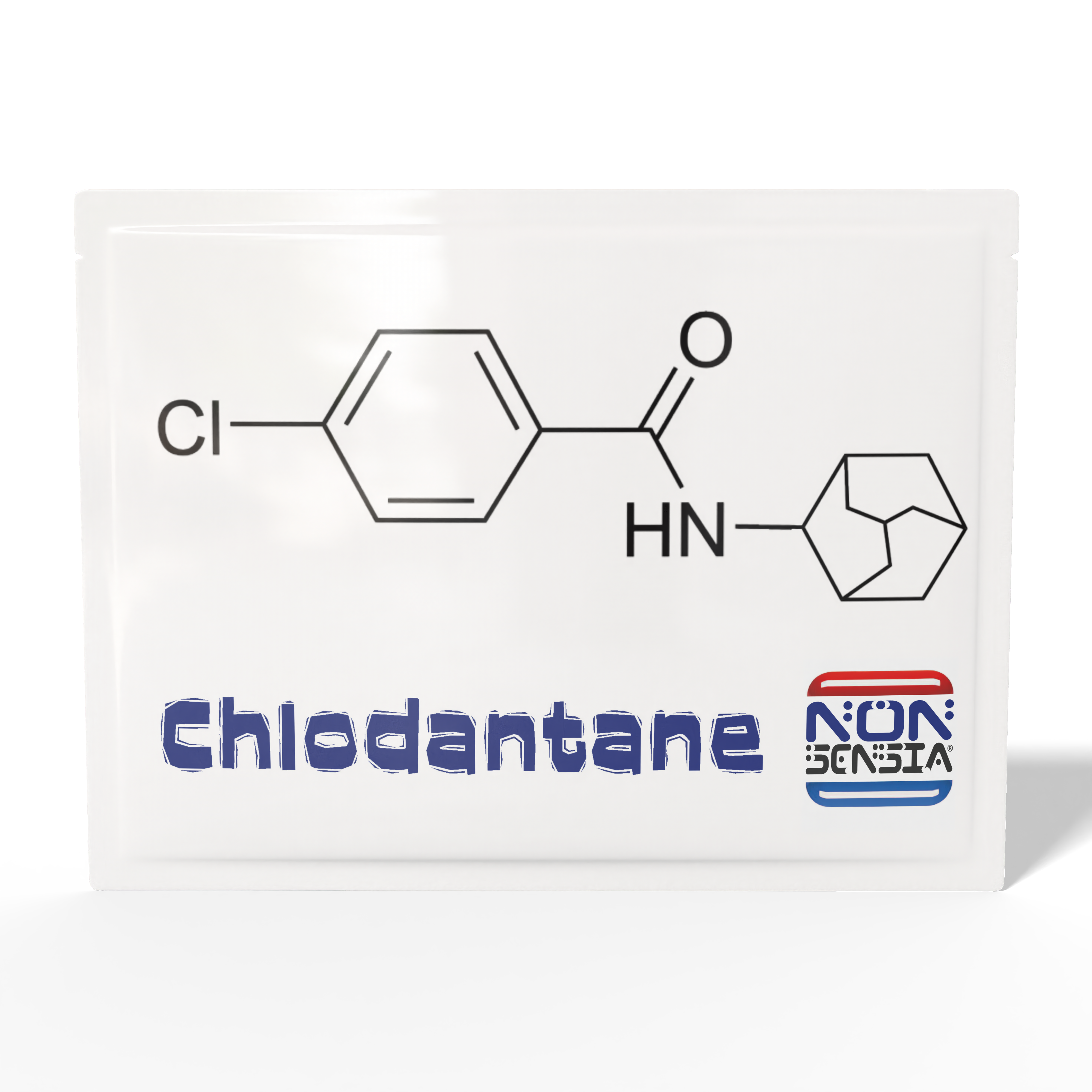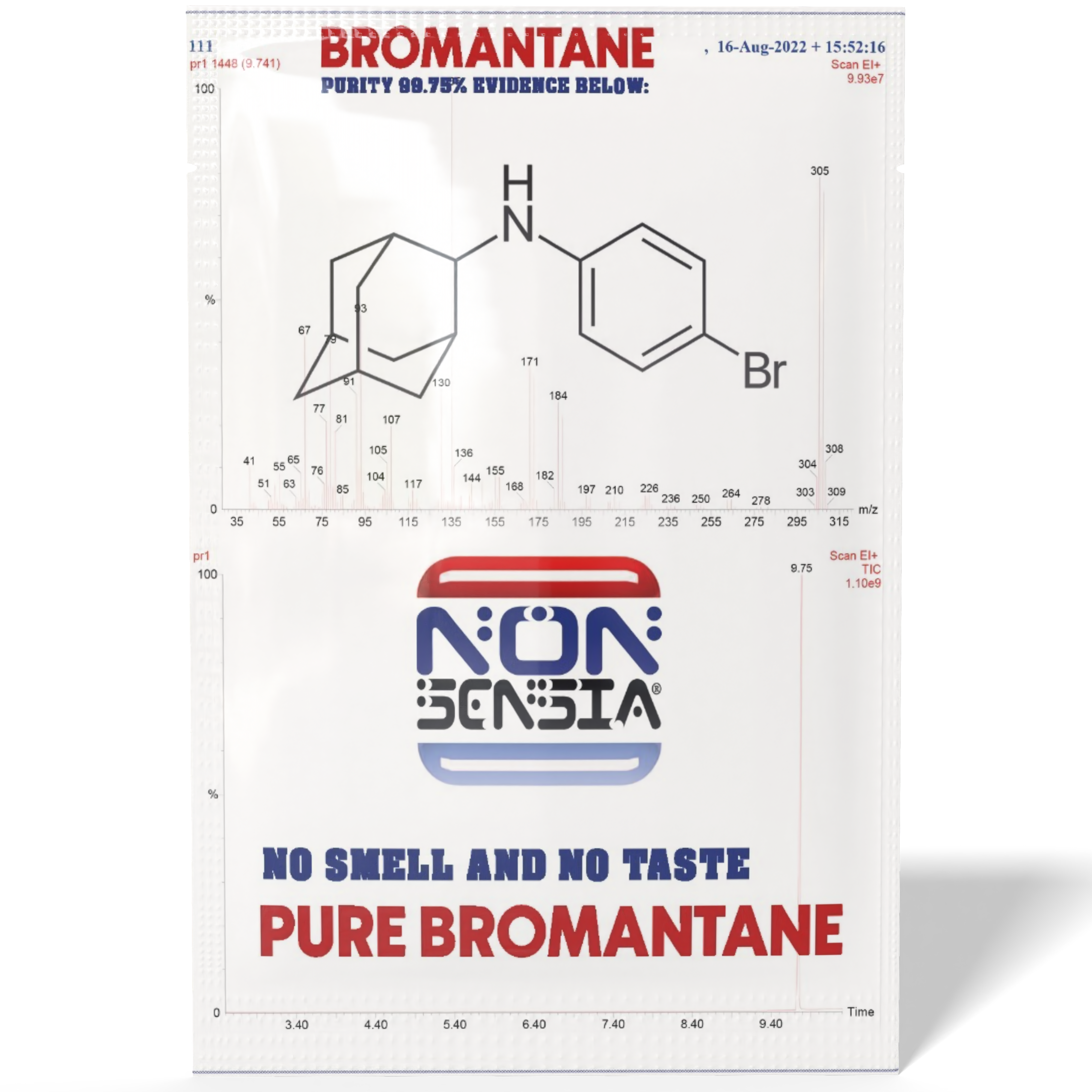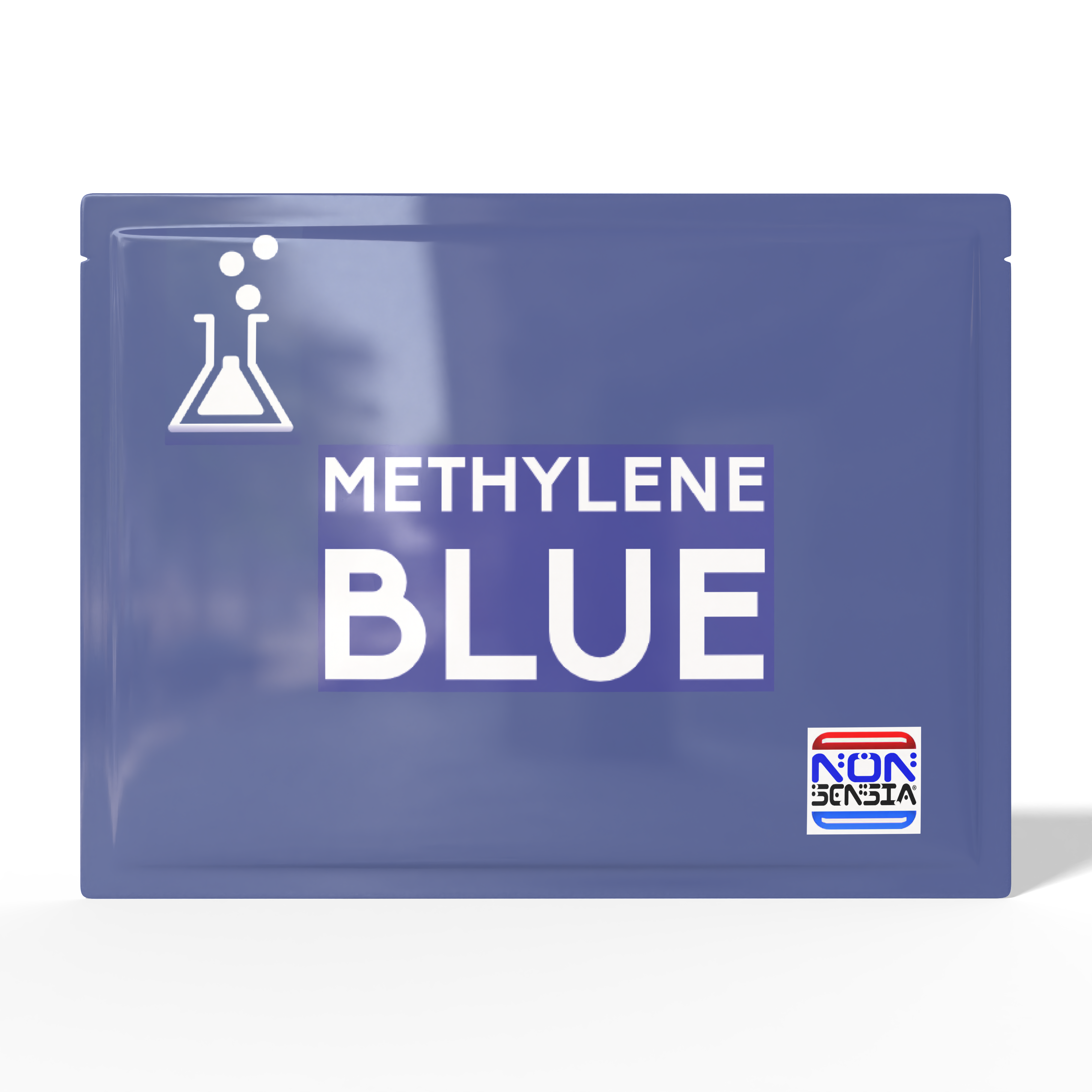Benzocaine – A Versatile Local Anesthetic for Pain Relief and More 🩺💊
Benzocaine serves as a versatile organic chemical compound widely used as a local anesthetic. It primarily relieves pain and discomfort, establishing itself as one of the most effective agents in pain management. While Benzocaine finds common use in various medical and cosmetic procedures, its applications extend beyond these areas. In this article, we explore the chemical properties, mechanism of action, medical applications, and compare Benzocaine to other similar compounds. Let’s dive into this fascinating molecule! 🔬
Chemical Properties of Benzocaine 🧪
- CAS number : 94-09-7
- Purity ≥ 99.52%
- Form : White or slightly yellow powder
- Molecular mass : Approximately 165.19 g/mol
- Chemical formula : C9H11NO2
- Melting point : About 89-90°C
- Solubility : Soluble in ethanol, chloroform and ether; slightly soluble in water
- Net weight : 1000 mg
- Use : Laboratory agent not intended for consumption.
Mechanism of Action of Benzocaine 🧠
Benzocaine works by interfering with the excitation and conduction processes of neurons. It initially crosses the lipid-rich axon membrane and becomes cationic inside the neuron, where the pH is more acidic. Once inside, Benzocaine blocks sodium ion channels, inhibiting nerve conduction and causing temporary loss of sensitivity to pain. This mechanism allows it to be effective for localized pain relief, making it useful in a wide variety of applications, including dental procedures, sore throat treatments, and skin irritation relief.
Uses of Benzocaine 💉
- Local Anesthesia: Used in dentistry and medical procedures, Benzocaine helps numb the skin or mucous membranes, ensuring patient comfort during treatments such as dental fillings, wisdom tooth extractions, and more.
- Sore Throat Treatment: In lozenges or sprays, it alleviates throat irritation caused by infections or dry air.
- Skin Irritation Relief: Benzocaine is a common ingredient in ointments and creams that soothe itching, sunburns, and insect bites.
- Hemorrhoidal Treatment: Healthcare providers use it in hemorrhoid creams and ointments to relieve pain, itching, and discomfort.
- Aesthetic Medicine: Benzocaine may be applied during certain procedures, like mesotherapy, to reduce pain and increase comfort.
- Oral Hygiene: Included in mouth sprays and lozenges to soothe mouth pain and irritation.
- Burn Relief: Benzocaine can be used to treat minor burns, helping to alleviate pain and reduce the burning sensation.
- Itch Relief: Manufacturers often include it in topical formulations designed to relieve itching from allergic reactions or conditions like eczema.
- Sunburn Treatment: Benzocaine helps reduce the pain and discomfort of sunburns by numbing the affected area.
- Muscle and Joint Pain Relief: When combined with other ingredients, it is sometimes used in topical creams to relieve muscle or joint pain.
Action of Benzocaine on the Body 🧬
In medical settings, Benzocaine is applied locally to prevent pain in specific areas. By blocking nerve impulse conduction, it causes a temporary loss of sensation. While generally safe, excessive or improper use can lead to side effects such as skin irritation or allergic reactions. Always follow guidelines and consult a doctor when using Benzocaine.
The Family of Anesthetics: Benzocaine vs Other Local Anesthetics 🏥
Benzocaine is just one member of the anesthetic family, with other local anesthetics like lidocaine, prilocaine, and tetracaine also offering pain relief. Each anesthetic has unique properties, such as different onset times, durations of action, and potential allergic reactions. However, Benzocaine remains a popular choice due to its accessibility and versatility. Here’s a comparison of Benzocaine with other common local anesthetics:
| Property |
Benzocaine |
Lidocaine |
Prilocaine |
Tetracaine |
| Onset of Action |
Rapid |
Fast |
Moderate |
Slow |
| Duration |
Short |
Moderate |
Moderate |
Long |
| Allergy Risk |
Low |
Moderate |
Low |
Moderate |
| Common Uses |
Topical pain relief |
Local anesthesia in surgeries |
Topical anesthesia |
Topical and ophthalmic anesthesia |
Benzocaine in Modern Medicine: Applications and Advancements 🔬
While medical and dental practices have used Benzocaine for many years, researchers continually evaluate its potential for new applications. Its low toxicity and ability to provide rapid, localized pain relief make it an essential tool in modern healthcare. Some of the latest advancements and potential uses include:
- Micro-needling and Mesotherapy: In aesthetic medicine, Benzocaine can help reduce discomfort during procedures like microneedling and mesotherapy, where needles are used to rejuvenate the skin.
- Post-Surgical Pain Management: Benzocaine has been used for pain management after minor surgeries or minor skin procedures, providing temporary relief.
- Ulcer Treatment: Benzocaine treats mouth ulcers in some formulations, reducing pain and accelerating healing.
- Wound Care: Research into using Benzocaine in wound care to reduce pain from minor cuts, abrasions, and surgical incisions is ongoing.
- Veterinary Applications: Veterinary professionals have tested Benzocaine, particularly for minor procedures on animals that require localized anesthesia.
Safety Considerations and Side Effects of Benzocaine ⚠️
Although doctors generally consider Benzocaine safe for topical use, you should be aware of some important safety considerations:
- Allergic Reactions: Some individuals may experience allergic reactions to Benzocaine, including skin rashes, swelling, and difficulty breathing. If any of these symptoms occur, seek medical attention immediately.
- Methemoglobinemia: In rare cases, excessive use of Benzocaine can cause methemoglobinemia, a condition in which the blood is unable to carry oxygen properly. This condition is more common in infants and young children, so it is crucial to follow the prescribed dosage.
- Skin Irritation: Overuse of Benzocaine on the skin may lead to irritation or sensitivity. Always perform a patch test before widespread use.
- Overdose Risk: Although rare, applying too much Benzocaine or using it on large areas of the body can lead to an overdose, resulting in dizziness, confusion, and breathing difficulties.
Alternatives to Benzocaine: Other Pain Relievers 🌿
If Benzocaine is unsuitable, several alternative anesthetics and pain relievers can be considered. These include:
- Lidocaine: A more potent anesthetic with a longer duration of action, commonly used in medical and dental procedures.
- Prilocaine: Often used in combination with other anesthetics for enhanced pain relief in dental and minor surgical procedures.
- Topical NSAIDs (Non-Steroidal Anti-Inflammatory Drugs): These are used for pain relief in conditions like arthritis and muscle pain.
- Menthol and Camphor: Manufacturers include these natural agents in creams and ointments to provide temporary pain relief from minor aches and strains.
- Capsaicin: An ingredient derived from chili peppers, used in creams for pain relief, especially for nerve pain.
Conclusion: Why Benzocaine is a Valuable Compound for Health and Beauty 💎

